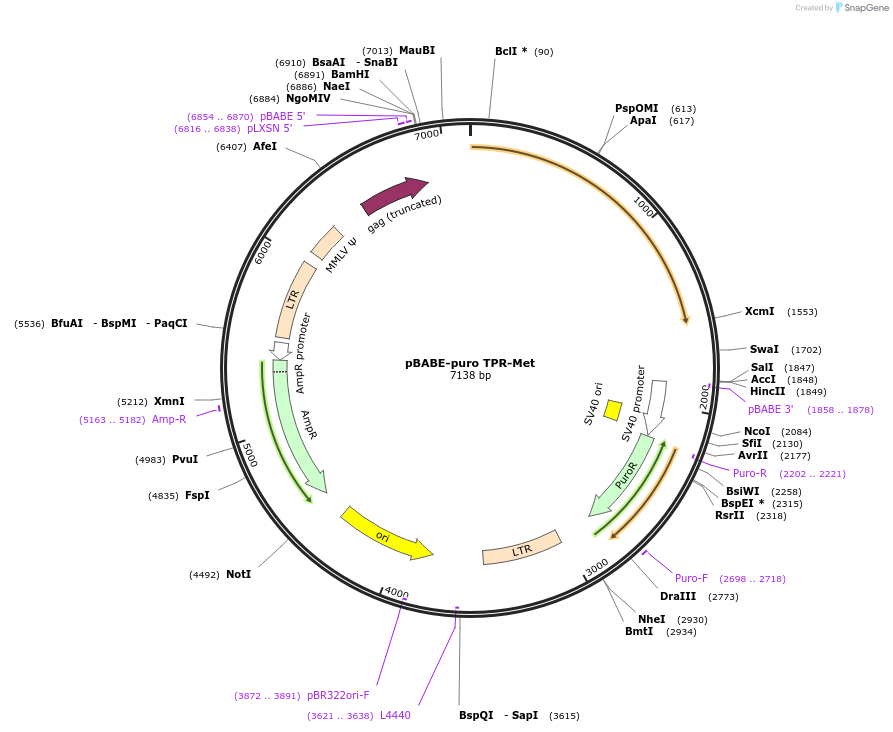-
Depositing Lab
-
Publication
-
Sequence Information
Ordering
| Item | Catalog # | Description | Quantity | Price (USD) | |
|---|---|---|---|---|---|
| Plasmid | 10902 | Standard format: Plasmid sent in bacteria as agar stab | 1 | $85 | |
Backbone
-
Vector backbonepBABE-puro
- Backbone size w/o insert (bp) 5100
-
Vector typeMammalian Expression, Retroviral
-
Selectable markersPuromycin
Growth in Bacteria
-
Bacterial Resistance(s)Ampicillin, 100 μg/mL
-
Growth Temperature37°C
-
Growth Strain(s)DH5alpha
-
Copy numberHigh Copy
Gene/Insert
Cloning Information
- Cloning method Restriction Enzyme
- 5′ cloning site BamHI (not destroyed)
- 3′ cloning site SalI (not destroyed)
- 5′ sequencing primer pBABE 5'
- 3′ sequencing primer pBABE-3 (Common Sequencing Primers)
Resource Information
-
A portion of this plasmid was derived from a plasmid made byG. Vande Woude
-
Articles Citing this Plasmid
Terms and Licenses
-
Academic/Nonprofit Terms
-
Industry Terms
- Not Available to Industry
Trademarks:
- Zeocin® is an InvivoGen trademark.
Depositor Comments
For a complete description of the TPR-met fusion, see PubMed ID: 3821733
These plasmids were created by your colleagues. Please acknowledge the Principal Investigator, cite the article in which the plasmids were described, and include Addgene in the Materials and Methods of your future publications.
-
For your Materials & Methods section:
pBABE-puro TPR-Met was a gift from Bob Weinberg (Addgene plasmid # 10902 ; http://n2t.net/addgene:10902 ; RRID:Addgene_10902) -
For your References section:
The melanocyte differentiation program predisposes to metastasis after neoplastic transformation. Gupta PB, Kuperwasser C, Brunet JP, Ramaswamy S, Kuo WL, Gray JW, Naber SP, Weinberg RA. Nat Genet. 2005 Oct . 37(10):1047-54. 10.1038/ng1634 PubMed 16142232

